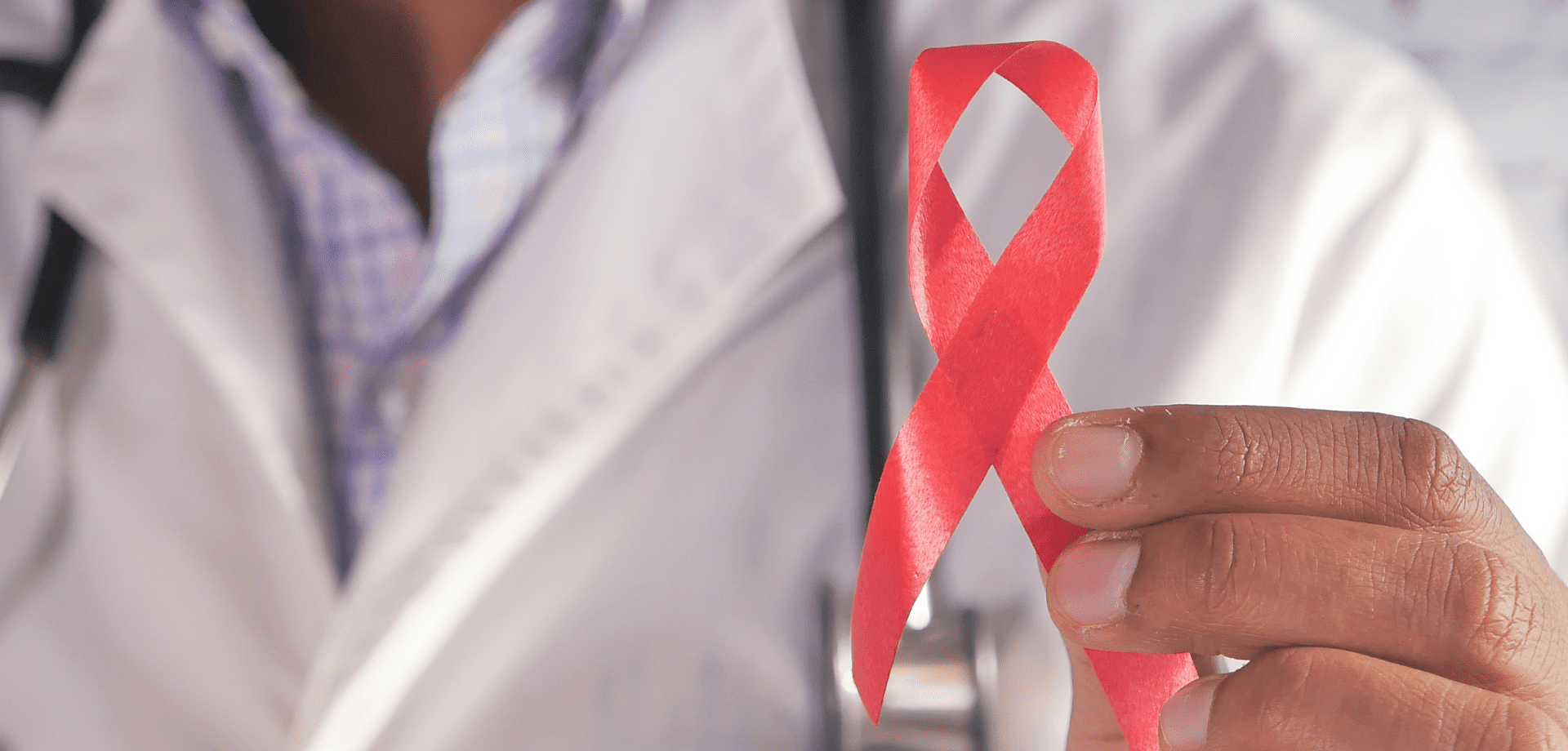Tag: HIV
Holidays are a time to relax, unwind and have fun!
However, this excitement can lead to us making decisions we may not usually make when we are at home. If you have unprotected sex whilst abroad whether it is oral, vaginal or anal you are at risk of catching sexually transmitted infections.
You could be at risk of catching these common STIs: HIV, chlamydia, HPV, herpes, syphilis and gonorrhoea.
What can you do to prevent an STI?
Abstaining from sex is the most reliable way to avoid infection. However, if you wish to be sexually active follow some of the tips below:
- Use a condom from start to finish every time during sex including oral, vaginal and anal.
- Get vaccinated to protect against diseases such as Hepatitis B and HPV.
- Do not assume that your partner is STI-free. Talk openly and discuss your sexual health histories.
- Taking drugs and/or alcohol can lead to bad decisions. Be cautious when having sex whilst inebriated as you are more likely to take risks. These include not wearing a condom or having sex with someone you usually would not.
What are the symptoms of an STI?
Symptoms are different depending on the infection. Some diseases also do not cause any symptoms which makes them very hard to spot. If symptoms do occur, they could be some of the following:
- Pain when you urinate or have sex
- Discharge from the vagina, penis, or anus
- Unexplained rash, sore, or ulcer on your skin, genitals, or throat
- Jaundice (yellow colour of the skin and eyes)
What do you do if you think you have an STI?
Having an open and honest conversation, discussing your sexual health with your doctor is a good start to help guide you towards any tests or medication that you may need.
Long-term problems can be prevented by testing for STIs early and also prevent the spreading to other partners.
If you are worried that you may have an STI you should:
- Not have sex with anyone. This will reduce the risk of spreading the disease to anyone else.
- See a doctor or nurse as soon as possible.
- Discuss your sexual history and international travel with the doctor or nurse as some diseases are more common in some countries.
- If you have a positive result notify your recent partners. They may also be infected and unaware.
Fleet Street Clinic offers a discreet and trusted sexual health service including confidential sexual health advice, instant testing, and comprehensive STI screening.
You can book a sexual health appointment online.
Is there such a thing as testing too early for STIs?
Yes, in fact, if you test too soon after exposure to an STI aka during the “window period”, you may not get an accurate result.
The ‘window period’ is the length of time it can take between catching an infection and when it will show in a test. It’s important to note that if you are tested earlier than the “window period”, some tests may not detect the STI, even though an individual is infected.
The timing of STI testing after potential exposure varies depending on the specific infection. In general, it is best to wait until a sufficient amount of time has passed for the infection to be detectable, but not so long that the infection has already caused damage.
The “window period” for common STIs:
Chlamydia and Gonorrhoea
– These bacterial infections can be detected 2 weeks after exposure. Symptoms can appear before this so those with symptoms shouldn’t delay testing.
HIV
– Antibody tests can be taken 4 weeks after exposure, whilst instant antibody tests are suitable for use 90 days post contact. Early detection RNA tests can be taken from 10 days after potential exposure. Your healthcare provider will be able to advise which test is most suitable for you.
Syphilis
– Antibody tests for syphilis can be detected 12-weeks after a suspected exposure. Symptoms can appear before this so those with symptoms shouldn’t delay testing, as alternative tests can be taken to diagnose.
If you have been exposed to an STI and are concerned about potential infection, it is recommended to have a sexual health consultation at the earliest opportunity. Your healthcare professional will be able to discuss your risk factors, and then advise the appropriate time interval for tests based on the type of test being used. Your healthcare provider can help you determine which test is right for you, and when to get tested. They will discuss this with you during your sexual health consultation.
It is important to note that some STIs, such as herpes and human papillomavirus (HPV), can have no symptoms, so it is possible to have an infection and not know it. Regular STI testing is the only way to diagnose and treat an infection early, which can prevent complications and reduce the risk of transmission to others.
If you have been sexually active and have concerns about potential STI exposure, it is best to consult with a healthcare provider. They can help you determine the best course of action, including when to get tested and which tests to have.
What STIs can we test for?
Fleet St. Clinic offers testing and treatment for several different STIs including:
– HIV
– Gonorrhoea
– Syphilis
– Chlamydia
– Herpes
– HPV – Genital Warts
Additional tests for symptomatic patients include:
– Mycoplasma
– Ureaplasma
– Trichomoniasis
Results
Rapid results are available for most of our STI checks meaning we can provide you with answers on the same day as your tests. Most swabs are analysed within our onsite laboratory so we can provide you with answers as soon as possible.
Remove unnecessary worry by selecting our fastest turnaround times. These vary for each type of STI, so discuss this with your nurse or doctor during your sexual health consultation.
How regularly should I be getting tested?
Getting tested for sexually transmitted infections (STIs) is an important part of maintaining sexual health. There is no one-size-fits-all answer to when to get tested, as the frequency and timing of STI testing depend on several factors, including:
1. Sexual behaviour: Individuals who engage in higher-risk sexual behaviours, such as unprotected sex, multiple sexual partners, or sexual contact with someone who has an STI, should get tested more frequently.
2. Personal health history: Individuals who have a history of STIs or other health conditions that affect sexual health should get tested more frequently.
3. Age: Young people and older adults may be at higher risk for STIs and should consider getting tested more often.
4. Pregnancy: Pregnant women should be tested for STIs during their first prenatal visit, as well as any other time during their pregnancy as recommended by their healthcare provider.
It is also important to note that some STIs can have no symptoms, so it is possible to have an infection and not know it. Regular STI testing is the only way to diagnose and treat an infection early, which can prevent complications and reduce the risk of transmission to others.
Related services available at Fleet Street Clinic:
HIV (Human Immunodeficiency Virus) is a viral infection that damages cells in your immune system. As a result, it weakens the body’s ability to fight off everyday infections such as the common cold. If you have HIV and get sick with a cold, you are much more likely to experience complications, such as developing pneumonia.
HIV is found in the body fluids of an infected person, such as semen, vaginal and anal fluids, blood and breast milk. It is not found in sweat, urine or saliva. Meaning HIV is typically spread by unprotected sex, the sharing of injecting equipment such as needles, and/ or passed from mother to baby either through birth or breastfeeding.
About National HIV Testing Week
National HIV Testing Week #HIVTestWeek aims to raise awareness of HIV and AIDS. It is an annual national campaign to encourage people to get tested for HIV regularly to reduce the number of people who are diagnosed late or remain undiagnosed.
Out of the 106,890 people in the UK with HIV, 1 in 20 of those do not realise they are HIV positive. Which is why it is so important to make sure everyone gets tested to know their status.
Data from 2019, revealed that 42% of people were diagnosed late. A late diagnosis significantly increases the risk of the virus seriously damaging your health, not to mention the fact that you are more likely to pass the virus on during the period when you are unaware of a positive diagnosis. The only means to address this issue is to increase awareness of the importance of HIV testing.
If you have HIV for a long time without knowing, it can damage your health and shorten your life expectancy. It’s a good idea to test at least once a year (or more if you have unprotected sex with more than one partner). Early detection can give you a better quality of life and reduce the spread of the disease.
While there is no ‘cure’ for HIV, thankfully there are now very effective treatments available that allow those who are HIV positive to live a healthy life and have a normal life expectancy. There is also emergency treatment available if you have been exposed to HIV within the last 72 hours (PEP). Additionally, there is medication available to prevent contracting HIV (PrEP) and even a tablet that will prevent you passing the virus on to anyone else. Access to these treatments is available to anyone HIV positive but the only way to know your HIV status is to get tested.
Know Your Status
At Fleet Street Clinic, we have two types of HIV tests available: an instant test and a blood test. An instant HIV test can provide you with results within a 15 minute nurse appointment. The test is a simple blood test done via a needle prick to the finger and is suitable for use 90 days post-exposure. It is a very simple process with extremely accurate results.

For HIV testing week we’re promoting our ‘So quick you can do whilst grabbing a coffee’ campaign to highlight just how quick an HIV test can be. We want to encourage all to make time to find out their HIV status.
Get Tested
We offer a number of HIV Tests, some of which can be performed in the clinic in just 15 minutes. You can be tested for HIV from as early as 28 days post-contact with a blood test, but don’t worry, during your appointment the clinician will let you know which test they recommend based on your history. Following an HIV test, we are on hand to offer guidance and referrals, should they be required.
Your privacy will be strictly protected.
You can book an HIV Test Online.
For more information on HIV you can visit our HIV page or HIV Prevention England.
Ask the average person what viral disease they think claims the most lives, and HIV might be the likely response. However, this is not so, according to research in the Lancet. The research suggests that viral hepatitis caused 1.45m deaths in 2013 compared to 1.2m lives claimed by AIDS in 2014. What is Hepatitis?
Hepatitis is best defined as an inflammation of the liver caused by the hepatitis virus. There are 5 types of hepatitis virus called; A,B,C,D and E. Contaminated food is usually the cause of virus types A and E. Types B, C and D are spread via infected bodily fluid contact. Virus types B and C lead to the most deaths.
Prevention
Hepatitis A and B are vaccine preventable. Many countries offer these vaccines routinely on the childhood schedule but this is not the case in the UK.
Hepatitis Vaccination at the Fleet Street Clinic
Vaccinations are needed to give protection against hepatitis A and B and they currently are not part of the childhood vaccination schedule in the UK. At the Fleet Street Clinic, we make it a priority to have a good supply of hepatitis A and B vaccines for children all year round. The hepatitis vaccinations can be given individually, or as a combined injection. For long lasting protection, several doses are required. Our vaccination team are highly trained, well-qualified and have dozens of years’ experience between them. Our vaccination service takes place in a clean, comfortable and safe environment.
You can learn more about our vaccinations here.
While hepatitis is causing millions of fatalities across the globe, you can take steps towards protection against the virus by booking an appointment for hepatitis vaccinations at Fleet Street Clinic today.
For Sexual Health Week, we sat down with Dr Belinda Griffiths to talk about why you should be looking after your sexual health.
Why is sexual health important?
Screening for sexually transmitted infections (STIs) is an important part of maintaining your sexual well-being. Maintaining good sexual health is important to prevent avoidable illness. STIs could lead to distressing and painful symptoms, not just for the sufferer but also for their partner.
What is the difference between an STD and an STI?
A sexually transmitted disease (STD) or sexually transmitted illness (STI) is interchangeable. The name is given to infections which are solely, or usually, transmitted by sexual contact.
What symptoms should I look out for?
The most important point to realise is that sexually transmitted infections may be asymptomatic, (meaning there are no symptoms,). The sufferer could be unaware he or she is spreading disease by sexual contact. Symptoms, when they occur, are many and varied.
There may be a pain on passing urine, discharge from the vagina or penis, lower abdominal pain, bleeding between periods or after sexual intercourse, ulcers, itching, rashes, lumps and bumps. Not to mention symptoms affecting areas other than the genitals.
Any of the listed symptoms should prompt a visit to a sexual health clinic for testing, which is easy and usually painless, involving the production of a urine sample, the taking of a swab or a blood test.
Failure to treat sexually transmitted infections can lead to infertility and long-term ill-health including dementia.
How often should I have an STI check?
If you have more than one partner or have not been using a condom every time you have sex it is advisable to have a sexual health check on a regular basis. Even if you have no symptoms.
How regularly depends on numerous factors such as the number of partners, partner’s sexual habits, use of (or failure to use) condoms. Those intravenous drug use and sexual encounters abroad.
What are the most common sexually transmitted diseases?
Chlamydia and Gonorrhoea are the most common sexually transmitted diseases; they may present with no symptoms, with pain passing urine or with a yellow discharge. They are diagnosed on a urine sample or swab and are easily treated.
Herpes affecting the mouth (otherwise known as a “cold sore”) is a highly contagious infection and ANY contact with the “cold sore”, be it oral or genital, will transmit this painful and distressing disease.
There is no absolute cure for this disease, although antivirals will help reduce the duration of an outbreak.
NEVER, ever, kiss or have sexual contact with anyone who has a cold sore. Bear in mind that the Herpes virus can be shed even when the sufferer has no symptoms. You can catch the virus despite no known contact with a cold sore.
Syphilis is a sexually transmitted disease which is on the increase; (148% increase between 2008 and 2017).
This has serious health consequences, as if undiagnosed, it can cause long-term neurological and cardiovascular changes which cannot be reversed, even heart failure and dementia. These severe long-term results of untreated syphilis were common years ago, before the discovery of Penicillin. The concern is that they will reappear due to the failure of diagnosis of the disease in its early stages.
Presenting symptoms are an ulcer or ulcers on the genitals at the point of contact with the disease, initially, which may or may not be noticed. This is known as a “chancre” and will arise 9-90 days after sexual contact with an infected partner.
If untreated, the disease progresses to what is known as secondary syphilis, which may present with a skin rash, possibly affecting the palms of the hands and soles of the feet.
Other signs are mouth ulcers, hair loss, bone pain, swollen lymph glands, hoarseness, kidney disease, deafness, meningitis, eye disease and fever.
Syphilis is easily diagnosed and treated after a simple blood test, but it may take 3 months for the test to be positive after initial contact with an infected partner. If in doubt, have the test.
Genital warts are unsightly swellings which arise in the genital area after contact with an infected partner.
Treatment is painful, with either creams or cryotherapy (freezing therapy.)
The good news is that the incidence of genital warts is reducing due to vaccination of teenage girls with Gardasil to protect against the Human Papilloma Virus, soon to be extended to boys.
HIV is the virus that leads to AIDS. Aids is a list of conditions (including infections and cancers) which occur as a result of damage to the immune system in the body.
Some people are more likely to contract HIV, they are:
Men who have sex with men, anyone who has sex abroad or sex with someone from an area where HIV is common, anyone having a transfusion of blood abroad, sex workers and intravenous drug users.
The earlier HIV is detected and treated, the better the prognosis
If in doubt, have the test.
Symptoms occur 2-4 weeks after contact with an infected person in 40-90% of cases.
Symptoms are non-specific and maybe a rash or glandular fever type illness with enlarged glands and fever.
A blood test may not be positive for 8 weeks after initial contact, but most are positive after 4 weeks.
HIV is now a treatable medical condition and the majority of those living with the virus remain fit and well on treatment.
Despite this, a significant number of people in the United Kingdom are unaware of their HIV infection and remain at risk to their own health and of passing the virus to others.
What to do if you’re worried about your sexual health?
At Fleet Street Clinic, we offer a reliable, full sexual health screening service which includes testing, advice and treatment. Many of our screenings can be done on a walk-in basis. All those concerned can be seen and tested immediately for peace of mind.
Utilising our on-site facilities we are able to provide a fast turnaround for STD & STI results. Our same day services provide on-the-spot results within 20mins. The majority of our blood results in 12 to 24 hours. All other comprehensive testing results in 2 to 4 days.





